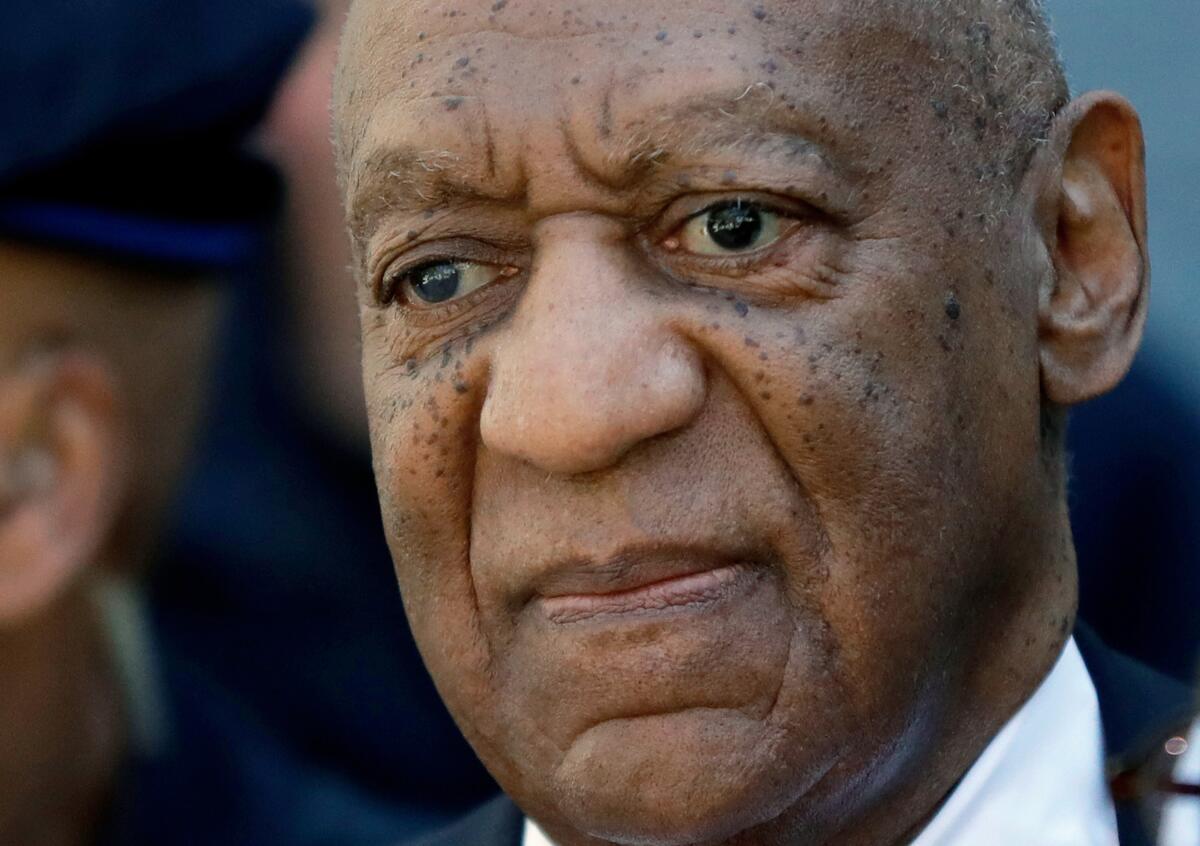Supreme Court refuses to revive Pennsylvania conviction against Bill Cosby

WASHINGTON â The Supreme Court refused Monday to review the Pennsylvania state court ruling that overturned the criminal sex-abuse convictions against comedian Bill Cosby on the grounds that he may have been wrongly induced to admit his guilt.
The high courtâs no-comment decision was expected since the Pennsylvania judges relied in part on their understanding of state law. The justices review rulings based on the U.S. Constitution and federal law but not state decisions based on state law.
The Pennsylvania Supreme Court ruling did not question the evidence from multiple women who said Cosby had drugged them to obtain sex. Instead, it said the comedian agreed to testify in a civil suit after he had been assured he would not face prosecution. When questioned under oath, he admitted to drugging women in the past.
Lawyers for Cosby argued his testimony in the civil suit brought by one of his accusers, Andrea Constand, was based on his belief that he had been promised â or at least thought he had been promised â that he would not face criminal prosecution from District Atty. Bruce Castor in Montgomery County, Pa., in 2005.
Castor had issued a press release saying he would not bring charges against Cosby. Cosbyâs attorneys said because he faced no threat of prosecution, he could not invoke his 5th Amendment right against self-incrimination in the civil case. Eventually, Cosby settled the civil suit by paying Constand $3.38 million.
More than a decade later, Cosbyâs admissions in the civil suit played a key role in his criminal prosecution by Kevin Steele, the new district attorney, in the assault on Constand. Cosby was convicted on three counts and sentenced to prison in 2018.
Last year, the state Supreme Court ruled Cosbyâs prosecution violated âprinciples of due process and fundamental fairness.â The state judges said âprosecutors generally are bound by their assurances, particularly when defendants rely to their detriment upon those guarantees.â
The outcome on Monday lets stand what Steele called a âdangerous precedentâ in which a âprosecution announcement not to file chargesâ may trigger due process prosecutions âagainst future criminal proceedings.â He said his predecessor did not make a âbinding agreementâ not to prosecute Cosby in the future.
Jennifer Bonjean, an attorney for Cosby, had urged the court to turn down the district attorneyâs appeal in Pennsylvania vs. Cosby and said it âgrossly mischaracterizesâ the state court ruling. She said the ruling did not rely on a press release issued by Castor, but rather his statements that said Cosby must testify in the civil suit.
She said âthere is nothing contentious about the Pennsylvaniaâs Supreme Courtâs narrowly tailored holding that a prosecutor who makes an unconditional promise not to prosecute to induce a suspectâs waiver of his 5th Amendment guarantee is bound by that promise.â
More to Read
Get the L.A. Times Politics newsletter
Deeply reported insights into legislation, politics and policy from Sacramento, Washington and beyond. In your inbox three times per week.
You may occasionally receive promotional content from the Los Angeles Times.











